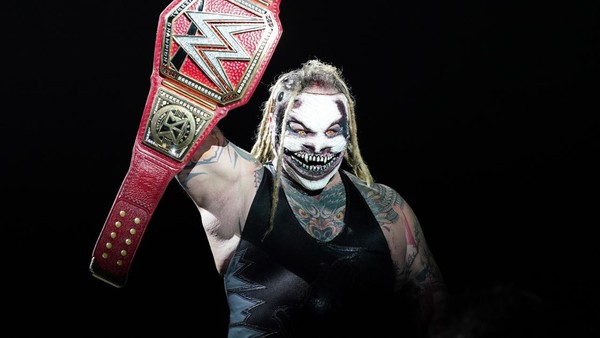The Disturbing Truth Behind WWE Universal Title

People fretted that the title would be the wrong colour upon its transfer to SmackDown this year. This bears repeating: people fretted that the title would be the wrong colour upon its transfer to SmackDown this year. It can't be red! That's the wrong colour! Red just looks weird on SmackDown!
Within three years, the colour of the title, once a source of complete scorn, became of the utmost importance. The very name of the Championship proved fatalistic; it is inextricably tied now to matters of branding and colour-coded marketing. It isn't a prestigious title that denotes triumph, quality, or anything of the sort. It is a prop.
It is a prop because it has only ever propped up WWE's foremost concerns of pushing office favourites and doing everything possible to fill out TV time with minimal imagination.
Consider the Official Bullsh*t Ratio of Universal Championship match finishes on pay-per-view. "Bullsh*t" here is defined, loosely, as any finish that functions to prolong and not conclude - something that has come to erode interest by all but telling fans that nothing matters, nobody ascends, nobody declines. WWE has promoted 27 Universal Title matches on pay-per-view. 15 have ended cleanly; 12 ended with some form of shenanigans designed to trick you into watching the next show via the most inelegant, apathetic means. WWE literally makes a mockery of your money practically half the time. Is it any wonder that the Universal Title doesn't feel - let alone look - like a major wrestling title?
The disturbing truth behind the WWE Universal Title is that it is a manifest symbol of WWE's creative woes, and literally, the only people willing to buy it are the remaining, dedicated, ultra-hardcores.